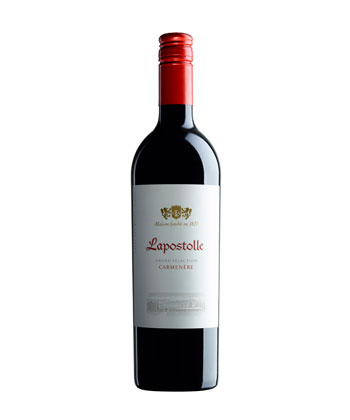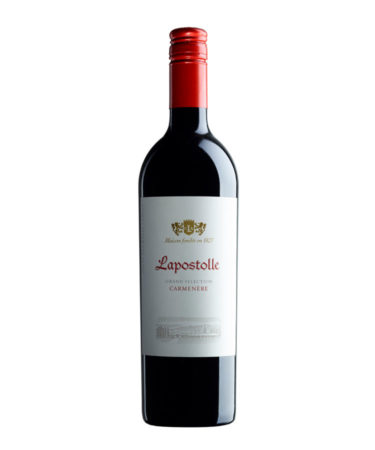Just as Malbec has thrived in Argentina after the variety was transplanted from France, another French grape export has found its element in South America in neighboring Chile: Carmenère, introduced in the late 19th century, and the country’s most important red variety. Carmenère (pronounced car-men-air) is related genetically to the Bordeaux varieties Cabernet Franc, Cabernet Sauvignon, and Merlot, but today it is almost gone from the Bordeaux region.
Carmenère can produce complex, medium-bodied wines that are red-hued and characterized by red-fruit tastes. I have found that Carmenère can sometimes be dominated by a green “stemmy” quality, especially when young. That’s not the case with Lapostolle’s excellent 2017 “Grand Selection” Carmenère from the Rapel Valley in central Chile.

As its name suggests, the origin of the Lapostolle winery is in France; Alexandra Marnier Lapostolle established it with her husband in 1994. (She and her family owned the company that makes Grand Marnier, the French liqueur taken over by the Campari group in 2016.)
Lapostolle’s 2017 “Grand Selection” Carmenère is a superb value at around $15. It’s quite tannic when just poured, but it quickly softens and mellows in the glass, with good structure supporting its notes of strawberry, blueberry, and pomegranate, with touches of cinnamon and dark chocolate on the long finish. A hint of that green herbal quality makes it all the more interesting. The blend is 85 percent Carmenère and 15 percent Syrah, and part of the wine was aged for seven months in oak barrels.
This is a wine made for grilled meats and stews, but it will also work well with vegetarian dishes, and I can also see it with full-flavored fish like salmon. With its complexity, versatility, and attractive price, it’s a prime example of why Chile continues to offer some of the best wine values.
